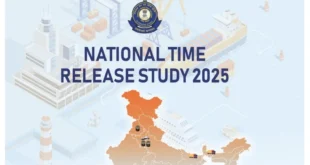The 103rd Constitution Amendment Act introducing special measures and reservations for ‘economically weaker sections’ (EWS) has been perceived as being obviously unconstitutional. This article is sceptical of such a reading and takes the view that a constitutional challenge to the amendment will take us into unclear constitutional territories. The strongest constitutional challenge might not be to the amendment itself but to the manner in which governments implement it. There is no foregone conclusion to a potential challenge and we would do well to start identifying the core constitutional questions that arise. To be clear, I am here concerned only with questions that arise within constitutional law. Special measures Article 15 stands amended enabling the state to take special measures (not limited to reservations) in favour of EWS generally with an explicit sub-article on admissions to educational institutions with maximum 10% reservations. The amendment to Article 16 allows 10% reservations (and not special measures) for EWS in public employment and does so in a manner that is different from reservations for Scheduled Caste/Scheduled Tribes and Other Backward Classes. The amendment leaves the definition of ‘economically weaker sections’ to be determined by the state on the basis of ‘family income’ and other economic indicators. Also critical to this amendment is the exclusion of SC/STs, OBCs and other beneficiary groups under Articles 15(4), 15(5) and 16(4) as beneficiaries of the 10% EWS reservation. A good point to start the consitutional examination is the Supreme Court’s view on reservations based purely on economic criteria. Eight of the nine judges in Indra Sawhney (November 1992) held that the Narasimha Rao government’s executive order (and not a constitutional amendment) providing for 10% reservations based purely on economic criteria was unconstitutional. Their reasons included the position that income/property holdings cannot be the basis for exclusion from government jobs, and that the Constitution was primarily concerned with addressing social backwardness. Basic structure doctrine However, the decision in Indra Sawhney involved testing an executive order against existing constitutional provisions. In the current situation, we are concerned with a constitutional amendment brought into force using the constituent power of Parliament. The fact that we are not concerned with legislative or executive power means that the amendment will be tested against the ‘basic structure’ and not the constitutional provisions existing before the amendment. The pointed question is whether measures based purely on economic criteria violate the ‘basic structure’ of the Constitution? I do not think it is a sufficient answer to say that ‘backwardness’ in the Constitution can only mean ‘social and educational backwardness’. Citing the Constituent Assembly debates is not going to take the discussion much further either. It is difficult to see an argument that measures purely on economic criteria are per se violative of the ‘basic structure’. We can have our views on whether such EWS reservations will alleviate poverty (and they most certainly will not), but that is not really the nature of ‘basic structure’ enquiry. Providing a justification for these measures as furthering the spirit of substantive equality within the Indian Constitution is not very difficult.
Check Also
Biofuels and the Food vs. Feed Dilemma
GS3 – Environment Context India’s growing emphasis on biofuels is raising alarm over the diversion …
 Chinmaya IAS Academy – Current Affairs Chinmaya IAS Academy – Current Affairs
Chinmaya IAS Academy – Current Affairs Chinmaya IAS Academy – Current Affairs


